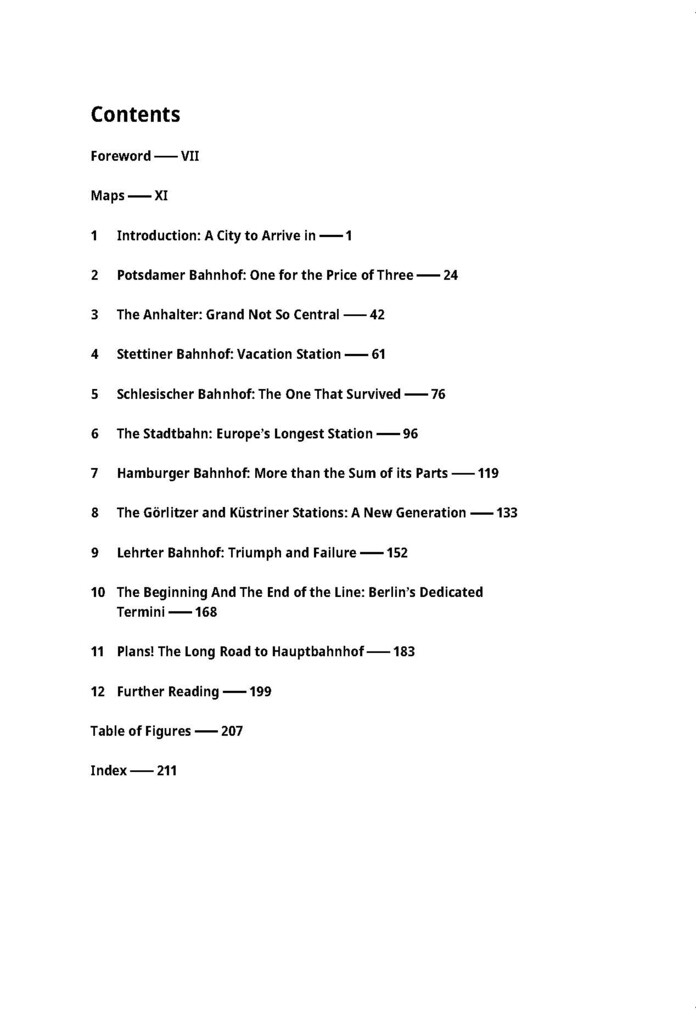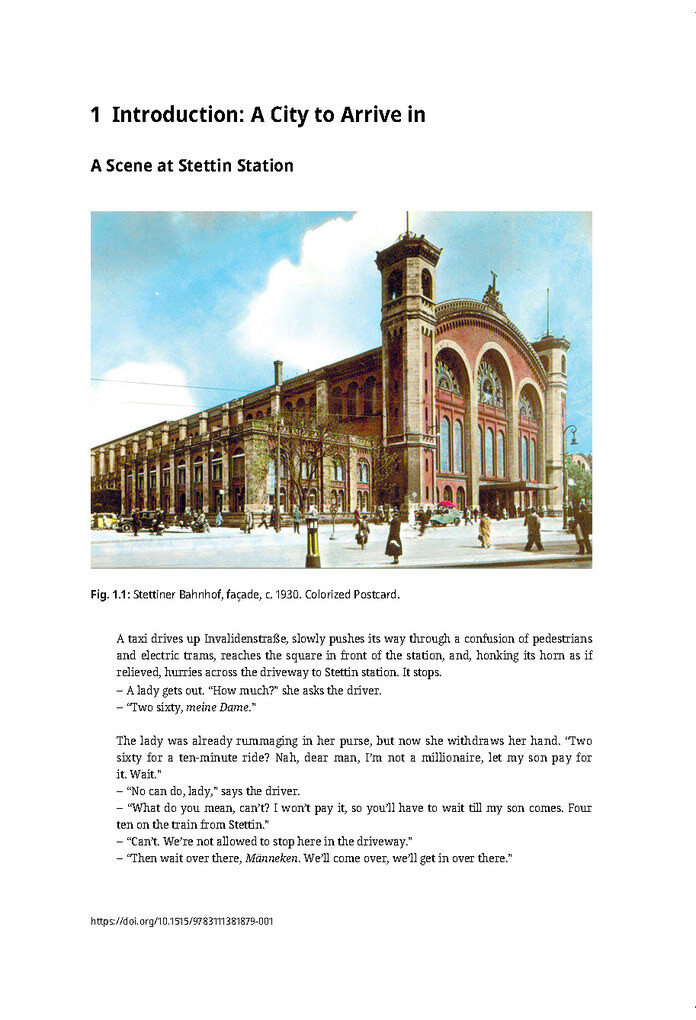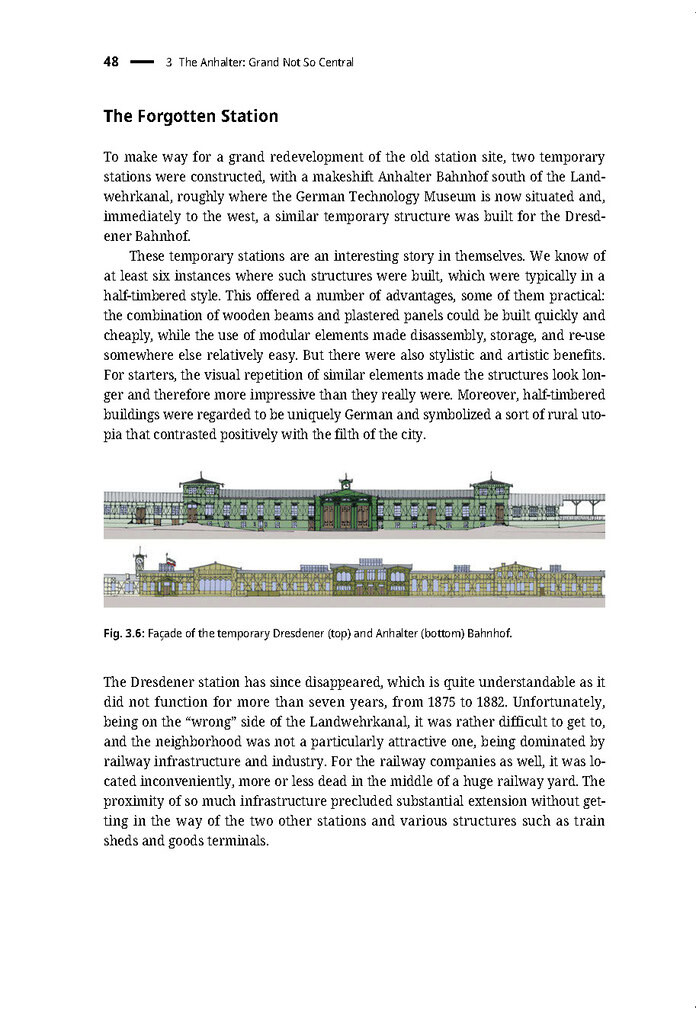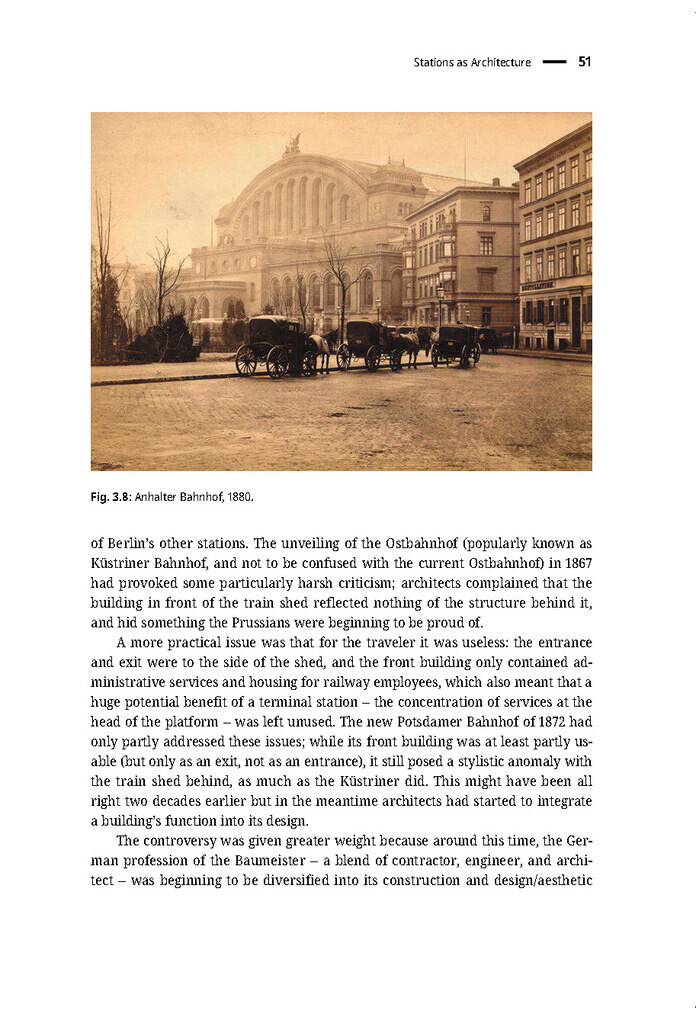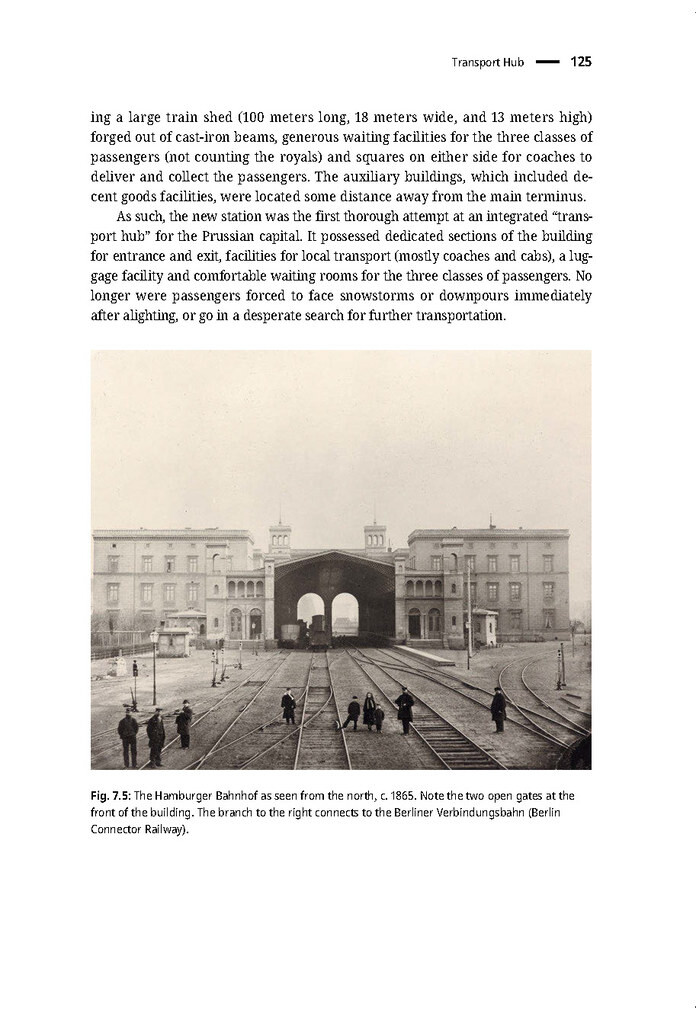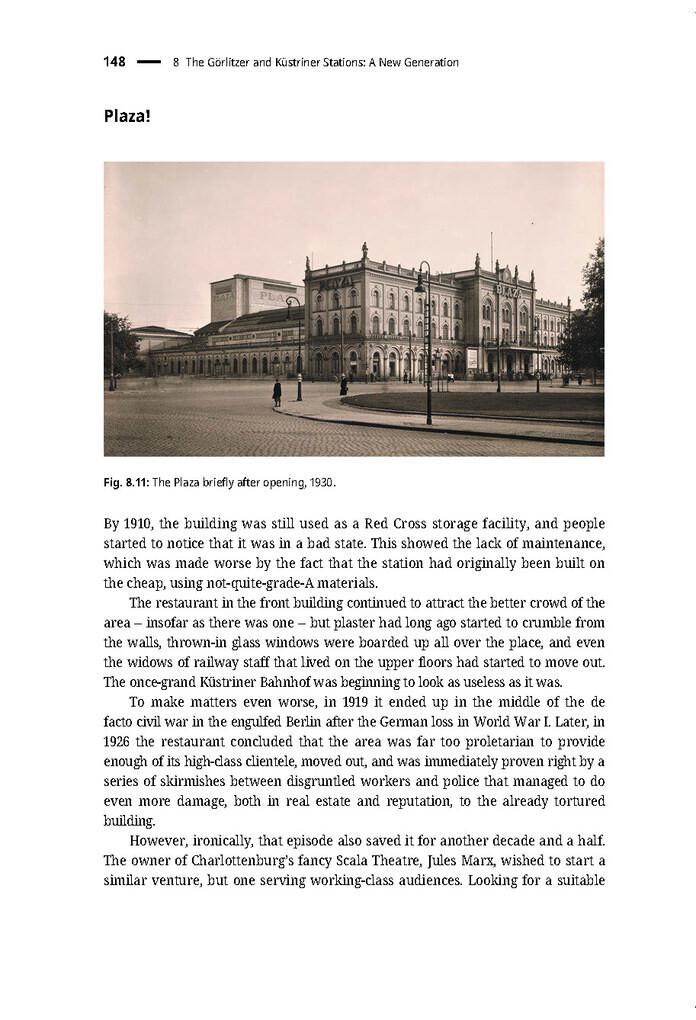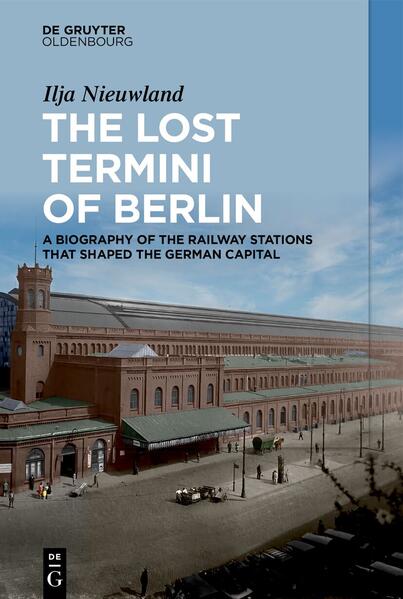
Zustellung: Mi, 11.06. - Fr, 13.06.
Sofort lieferbar
VersandkostenfreiBestellen & in Filiale abholen:
From the birth of Berlin's railway network to the time when the bombs of the Second World War and the concrete slabs of the Wall changed the city forever, the Prussian and later German capital counted eight major railway stations. These were beacons in the city: impressive monuments, magnificently built for the bygone rituals of arrival and departure, yet tightly woven into a distinct part of town.
Railway stations are magical, meaningful places, allowing for escape as well as promise, nostalgia as well as novelty. They process all sorts of people, from well-to-do business types to unfortunates forced to live on the fringes of society. There is a nervous energy around them, created by those looking forward to their journey, others trying to get oriented in a place that is new to them, and some facing the drudgery of yet another commute.
And if pre-World War 2 Berlin was anything, it was energetic. Building an adequate transport infrastructure for Europe's fastest-growing city proved to be a continuous challenge that required flexibility and adaptation and touched the city in ways that can still be seen today. This is the history of Berlin's railway stations, the people that used them, and the way the city was shaped by them.
Produktdetails
Erscheinungsdatum
04. November 2024
Sprache
englisch
Seitenanzahl
215
Autor/Autorin
Ilja Nieuwland
Verlag/Hersteller
Produktart
gebunden
Abbildungen
47 b/w and 97 col. illustrations, 4 b/w tbl.
Gewicht
460 g
Größe (L/B/H)
231/158/19 mm
ISBN
9783111381213
Entdecken Sie mehr
Pressestimmen
"Nieuwland shows remarkable expertise in detailing the stations and their connections, transforming what could be a purely technical history into an evocative journey through Berlin's past. Even readers without a strong interest in railway history will be captivated by the rich narrative and the book's ability to contextualise Berlin's transport infrastructure within wider historical developments. Supplemented by a series of illustrations, maps and plans, the text is as visually appealing as it is informative, creating an immersive reading experience. [. . .]
The Lost Termini of Berlin is a must-read for anyone interested in urban history, architectural heritage, or the multi-layered complexity of Berlin itself. Whether you are a history buff, a railway enthusiast, or a reader drawn to the hidden stories of cities, this book provides an illuminating glimpse into an often-overlooked aspect of Berlin's history [. . .] It is a highly recommended contribution to the literature of Berlin's urban history." -
Breno Borges (CIUHCT, Portugal) in The Journal of Transport History 0(0), April 15, 2025, URL: https://doi. org/10. 1177/00225266251333346
***Interview with the author Ilja Nieuwland for Whitlam's Berlin Tours.
Bewertungen
0 Bewertungen
Es wurden noch keine Bewertungen abgegeben. Schreiben Sie die erste Bewertung zu "The Lost Termini of Berlin" und helfen Sie damit anderen bei der Kaufentscheidung.










